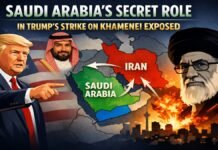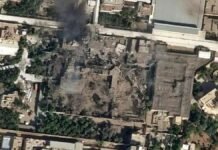
Key Points
- Pakistan Army Chief Asim Munir to visit Washington for US Army’s 250th anniversary on June 14, coinciding with President Trump’s birthday.
- The visit follows recent India-Pakistan conflict and has triggered strong diplomatic reactions in India and protests by Pakistan’s PTI party.
- US expected to press Pakistan on counterterrorism and its growing ties with China, especially through the China-Pakistan Economic Corridor (CPEC).
- Munir’s meetings with US State Department and Pentagon officials signal deeper strategic implications beyond the ceremonial invite.
- The move unsettles not only India but also China, as the US seeks to recalibrate regional influence.
Islamabad: The United States has invited Pakistan’s Chief of Army Staff, Field Marshal Asim Munir, to Washington for the 250th anniversary celebrations of the US Army on June 14 a date that also marks President Donald Trump’s 79th birthday. Munir is scheduled to arrive in the US capital on June 12, where he will attend a high-profile military parade and hold meetings with senior officials from the US State Department and the Pentagon.
Backdrop: India-Pakistan Conflict and Diplomatic Fallout
Munir’s visit comes just weeks after a major escalation between India and Pakistan, triggered by the Pahalgam terror attack that killed 26 civilians in Jammu and Kashmir on April 22, 2025. India responded with Operation Sindoor, launching precision strikes against terror camps in Pakistan and Pakistan-occupied Kashmir. The conflict led to a diplomatic standoff, with both nations recalling envoys and suspending dialogue before a US-brokered ceasefire took hold.
In this tense context, the US invitation to Munir has been met with sharp criticism in India. Political leaders and analysts have called it a “serious diplomatic setback,” especially since Munir had made provocative statements prior to the Pahalgam attack. India has been actively working to isolate Pakistan on the global stage, making the US gesture particularly controversial.
Protests and Political Turmoil in Pakistan
The invitation has also sparked unrest within Pakistan. The opposition Pakistan Tehreek-e-Insaf (PTI) party is leading protests against Munir’s US visit, branding him a “criminal” and planning demonstrations both in Pakistan and in the US. The controversy underscores deep divisions within Pakistan’s political landscape and the contentious role of the military in national affairs.
US Strategy: Counterterrorism and the China Factor
While the visit is officially ceremonial, its timing and context reveal deeper strategic motives. US officials are expected to use Munir’s presence to press Pakistan on two fronts:
- Counterterrorism: The US wants Pakistan to intensify its crackdown on terrorist groups operating against India and Afghanistan, especially in the wake of recent attacks.
- China-Pakistan Ties: Washington is increasingly wary of Pakistan’s deepening economic and military partnership with China, particularly through the CPEC and the Belt and Road Initiative (BRI). The US sees these projects as expanding China’s influence in South Asia and providing Beijing with strategic access to the Arabian Sea.
A senior US general recently praised Pakistan as a “phenomenal partner” in counterterrorism, highlighting Islamabad’s role in operations against ISIS-Khorasan and efforts to arrest high-profile terrorists. However, Indian analysts argue this overlooks Pakistan’s history of supporting groups that target India, fueling further distrust.
China’s Concerns and Regional Power Play
Geopolitical experts note that Munir’s US visit is as much a signal to China as it is to India. China, Pakistan’s closest strategic ally, has invested heavily in CPEC, making Islamabad a key node in its global ambitions. The US, by engaging Pakistan’s military leadership, aims to counterbalance China’s growing footprint and possibly coax Pakistan into diversifying its partnerships.
China’s reaction is one of unease, as the visit could disrupt its “all-weather” alliance with Pakistan and test Islamabad’s ability to balance ties between Beijing and Washington.
What’s on the Agenda?
During his Washington trip, Munir is expected to:
- Attend the US Army’s 250th anniversary parade.
- Hold closed-door discussions with US State Department and Pentagon officials, focusing on regional security, counterterrorism, and the future of US-Pakistan military cooperation.
- Possibly seek US support against the Tehreek-e-Taliban Pakistan (TTP), a militant group operating from Afghanistan that poses a persistent threat to Pakistan’s security.
A Visit With Far-Reaching Implications
Asim Munir’s visit to Washington is far more than a ceremonial gesture. It is a high-stakes diplomatic maneuver that reflects the shifting sands of South Asian geopolitics, the US-China rivalry, and the enduring volatility of India-Pakistan relations. With protests raging, diplomatic tensions high, and great-power competition intensifying, all eyes are on Washington as the region braces for the next chapter in this unfolding strategic drama.




















































